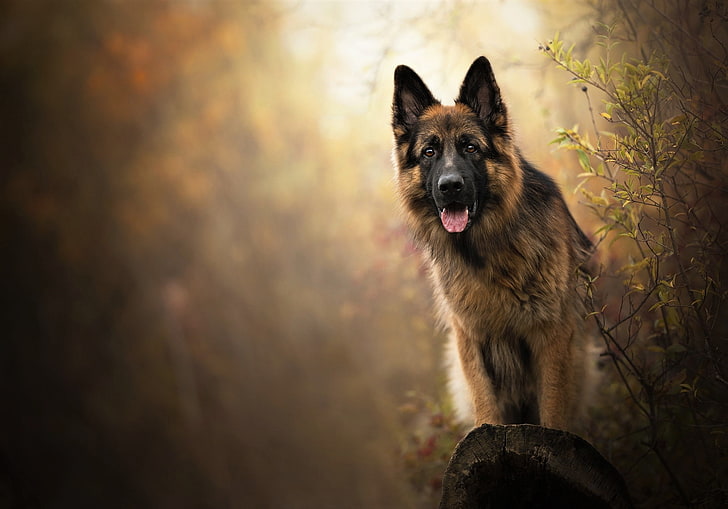Things get worse if you adopt an untrained or aggressive blue-silver German Shepherd dog. I received a lot of emails about dog owners who couldn’t find any special canine wolf dogs. I have put my five years of experience into this blog post; here, you’ll let each of you adopt any dog, especially a wolfdog.
Choosing a canine wolf dog is an exciting endeavor, but it’s essential to approach it with careful consideration and thorough research. In this blog post, we’ll explore the key factors to consider when choosing a blue-silver German Shepherd. Here’s a guide to help you find a reputable breeder and avoid pitfalls.
Table of Contents
ToggleResearch for blue-silver German Shepherd
Research is the most critical step in finding a reputable breeder and ensuring you’re making an informed decision. Here are some things to consider when conducting research:
Breeder Reputation:
Start by researching breeders who specialize in your required breed, like blue-silver German Shepherds. Look for breeders with a solid reputation and positive reviews from past clients. Online forums, breed-specific groups, and breed clubs can be valuable resources for finding recommendations.
Breeding Practices:
Investigate the breeding practices of potential breeders. A reputable breeder will prioritize the health and well-being of their dogs, including proper health testing, socialization, and responsible breeding practices. Look for breeders who are transparent about their breeding program and can provide documentation to support their claims.
Conduct thorough research and carefully evaluate potential breeders. Spend a lot of time researching so you’ll get a few breeders to select one. The next step is related to the dog’s health.
Health Testing:
Health testing is a crucial aspect of responsible breeding, particularly when it comes to ensuring the well-being of the dogs and producing healthy offspring. Here’s what you should know about health testing.
Hip Dysplasia Evaluation:
Hip dysplasia is a common orthopedic condition in German Shepherds. Responsible breeders conduct hip evaluations using X-rays to assess the hip joint’s health and detect any signs of dysplasia. The Orthopedic Foundation for Animals (OFA) and the PennHIP method are commonly used evaluation schemes.
Elbow Dysplasia Screening:
Elbow dysplasia is another orthopedic condition that can affect German Shepherds. Breeders should screen their breeding stock for elbow dysplasia using X-rays or other diagnostic tests. The OFA also provides certification for elbow evaluations.
Degenerative Myelopathy Testing:
Degenerative myelopathy (DM) is a progressive neurological disease that affects the spinal cord. It is known to occur in German Shepherds, and responsible breeders test their dogs for the DM gene mutation to identify carriers and reduce the risk of producing affected offspring.
Other Genetic Health Tests:
In addition to hip dysplasia, elbow dysplasia, and degenerative myelopathy, breeders may consider other genetic health tests depending on the breed’s predisposition to certain conditions. These may include tests for inherited eye disorders, heart conditions, etc.
DNA Profiling:
DNA profiling can be used to confirm parentage and ensure the accuracy of pedigrees. It helps prevent accidental or intentional misrepresentation of a dog’s lineage and maintains the integrity of the breeding program.
Regular health checks:
Besides specific genetic health tests, responsible breeders ensure that their dogs receive regular veterinary care, including vaccinations, parasite control, and overall health assessments. Regular health checks help identify and address any health issues promptly.
Choose a breeder who prioritizes health testing and breeding practices to reduce the incidence of genetic diseases.
Visit the Breeder:
Never get satisfied with the pictures and documents you receive on the phone. Make sure you visit the breeder. Here’s what you should consider when visiting the breeder:
Observe the environment:
Cleanliness:
The breeding facility should be clean and well-maintained. There should be no foul odors, excessive waste, or signs of neglect. Cleanliness is essential for the health and well-being of the dogs.
Living Conditions:
Take note of where the dogs are housed. They should always have adequate space to move around, comfortable bedding, and access to clean water. Avoid breeders who keep their dogs in overcrowded or unsanitary conditions.
Interaction:
Observe how the breeder interacts with their dogs. A reputable breeder will demonstrate care and affection for their dogs, and the dogs should respond positively to their presence. Please observe the dogs’ body language to gauge their comfort level.
Socialization:
Look for evidence of socialization efforts. Puppies should be exposed to different people, environments, and stimuli to help them develop into well-rounded adults. Ask the breeder about their socialization practices and experiences with the puppies.
Health of the Dogs:
Assess the overall health and condition of the dogs. They should have shiny coats, clear eyes, and a healthy weight. Be wary of any signs of illness or injury, such as coughing, lethargy, or visible injuries.
Temperament:
Spend time observing the temperament of the parent dogs and any puppies available. They should exhibit traits typical of the breed, such as alertness, intelligence, and friendliness. Avoid dogs that display excessive aggression, fearfulness, or other behavioral issues.
Transparency:
A reputable breeder will be transparent about their practices, including their breeding program, health testing protocols, and any potential risks or concerns associated with the breed. They should be willing to answer your questions openly and honestly.
By carefully observing these factors, you can gain valuable insight into the breeder’s practices and the quality of their dogs. Trust your instincts, and don’t hesitate to walk away if you have doubts or concerns about the breeder or their facilities.
Ask Questions:
Don’t hesitate to ask the breeder plenty of questions about their breeding program. You can ask questions like:
Health and Care:
Can you provide documentation of health clearances for the parent dogs, including hip and elbow evaluations?
Have the parent dogs been tested for genetic conditions such as degenerative myelopathy (DM)?
What vaccinations has the puppy received, and when is the next one due?
What type of diet is the puppy currently on, and can you provide recommendations for feeding and nutrition?
How have the puppies been socialized, and what experiences have they been exposed to so far?
Breeding Practices:
How long have you been breeding blue-silver German Shepherds, and what is your experience with the breed?
What criteria do you use to select breeding stock, and what traits are you striving to improve or maintain in your breeding program?
Do you adhere to any specific breeding standards or guidelines set by kennel clubs or breed organizations?
How many litters do you typically have annually, and how do you ensure the health and well-being of the parent dogs and the puppies?
Puppy’s Background:
Can you provide information about the puppy’s parents, including their temperament, health, and notable achievements or titles?
What is the puppy’s lineage, and do you have pedigrees available for review?
Have any of the puppy’s littermates been shown or participated in performance events?
Contracts and guarantees:
What is included in your health guarantee, and what recourse do I have if the puppy develops health issues?
Do you require spaying or neutering, and if so, at what age should it be done?
What are the terms of your return policy, and under what circumstances would I be eligible for a refund or replacement puppy?
Are there any restrictions or limitations on registration papers for the puppy?
Support and Resources:
Will you provide guidance and support after I bring the puppy home, including training, behavior, and health care advice?
Do you have references from past clients who have purchased puppies from you?
Can you provide recommendations for local veterinarians, trainers, or other resources if I need assistance?




